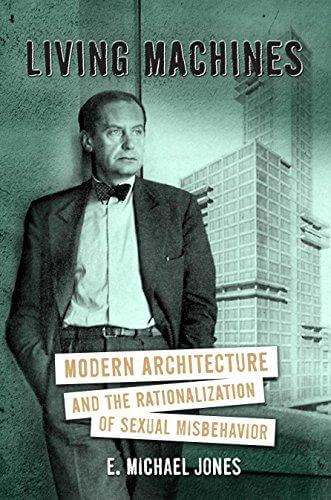
E. Michael Jones's 'Living Machines: Modern Architecture and the Rationalization of Sexual Misbehavior' completes his groundbreaking trilogy, which includes 'Degenerate Moderns' and 'Dionysos Rising.' This insightful 228-page analysis uncovers the profound relationship between the personal lives of modern architecture's forefathers and their revolutionary designs, which catered to an era of sexual nomadism, devoid of the need for traditional home or family ties. Jones embarks on a critical exploration, starting with the figure of Walter Gropius, to demonstrate how modern architecture's evolution was significantly influenced by the architects' own lives, which were often at odds with traditional values.
Through a detailed examination, Jones criticizes the Bauhaus (or International Style) for its atheistic overtones and rejection of natural and individualistic principles, arguing that such a movement not only reshaped our physical spaces but also reflected a deeper philosophical shift away from conventional societal norms. The book is celebrated for its incisive look into the philosophical foundations of the Bauhaus movement, with The Biblical Booklist praising it for revealing how modern architecture assumes the supremacy of the group over nature and the individual.
Steven Schloeder of the Catholic World Report commends 'Living Machines' for its intriguing argument that connects an architect's personal moral compass with their professional output, highlighting the consequential rejection of traditional family structures and values in modern architectural designs. This critical perspective offers readers an opportunity to reconsider the built environment's influence on, and reflection of, contemporary societal values.
E. Michael Jones's 'Living Machines' is an essential contribution to the discourse on architecture and morality, offering a well-researched and compelling narrative that challenges readers to reflect on how the ideologies of architects have shaped not only our physical surroundings but also the fabric of society. It is a must-read for those interested in the intersections of architecture, culture, and ethics, providing a thought-provoking analysis of where we have been, where we are, and where we are potentially headed."
